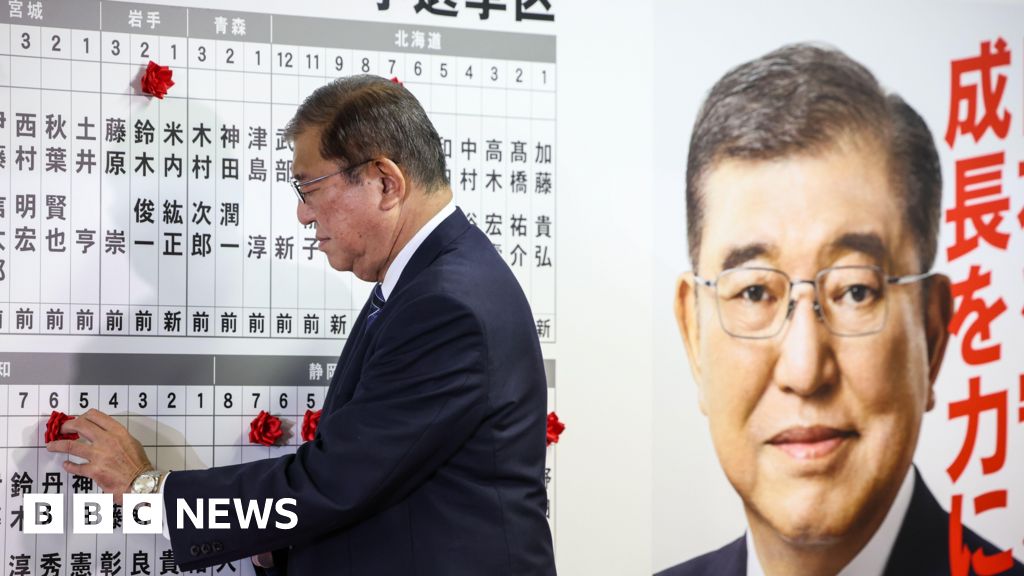Japanese elections are usually low-key, boring affairs.
This snap general election was neither of those things.
This dramatic vote comes in the wake of the political funding corruption scandal involving senior Liberal Democratic Party members and ministers that came to light last year, tarnishing the Liberal Democratic Party’s image and angering the public.
Voters channeled their anger in this election, sending a strong message that they will punish the Liberal Democratic Party at the voting booth.
According to the best estimates, the Liberal Democratic Party, which has been in power almost continuously since 1955, has lost its sole majority in the country’s powerful lower house of parliament.
The Liberal Democratic Party also lost its majority as a ruling coalition. Komeito, the coalition’s junior partner, has lost several seats, including the leadership seat, meaning that even with the Liberal Democratic Party as a partner, it will still fall short of the 233 seats needed for a majority.
Prime Minister Shigeru Ishiba took a political gamble that backfired.
He and the Liberal Democratic Party underestimated the extent of people’s anger and, more importantly, their willingness to act on it.
But this was the perfect storm. The corruption scandal involved dozens of ruling party members being investigated for embezzling millions of dollars in proceeds from political fundraising events at a time when Japanese households were struggling with inflation, high prices, stagnant wages and a stagnant economy.
If the Liberal Democratic Party is to remain in power, it will need to form a coalition with other parties that have just contested elections, but it will be doing so from a significantly weaker position. This means they must engage in negotiations and make concessions in order to survive.
I can’t overstate how rare this is. The Liberal Democratic Party has always enjoyed a secure and stable position in Japanese politics.
Although the ruling party has a strong governance record, the opposition parties’ three years in power in 1993 and 2009 both ended in poor results.
Since returning to power in 2012, the Liberal Democratic Party has been able to win one election after another with almost no votes. There have long been voices of resignation to the status quo, and the opposition remains unable to convince the public.
“I think we (Japanese) are very conservative,” 66-year-old voter Miyuki Fujisaki told the BBC a few days before the election.
“For us, it’s very difficult to challenge and make changes. And once the ruling party changes (and the opposition takes over), in the end nothing really changed, that That’s why we tend to remain conservative,” she added.
Fujisaki said he’s unsure who to vote for this time around, especially as a funding corruption scandal engulfs the Liberal Democratic Party. But she has always voted for the Liberal Democratic Party and planned to do the same this election.
The results of this election tell a larger story about the current state of Japanese politics. The ruling party, which has ruled for decades, and the opposition party, which has failed to unite and become a viable alternative when the people needed it.
The Liberal Democratic Party lost its majority in this election. But no one actually won.
Japan’s ruling party suffered a major blow at the voting booth, but not so badly that it was eliminated.
Geoffrey Hall, a lecturer at Kanda University of International Studies, told the BBC that although voters want to hold politicians to account through elections, “in their minds, there is actually a sense of control.” There’s no one else I can trust.”
The largest opposition party, the Constitutional Democratic Party, made great strides in this election. But observers say these results reflect voters’ anger with the Liberal Democratic Party rather than their support for the opposition party.
“This election seems to be aimed at voters who are tired of corrupt and dirty parties and politicians. But that’s not what they want to see in new leadership,” Hall said. said.
As a result, all that remains in Japan is a weakened ruling party and a splintered opposition party.
Japan has long been seen as a beacon of political stability, a safe haven for investors and a reliable diplomatic partner in the increasingly volatile Asia-Pacific region.
This political turmoil in Japan is a matter of concern not only for its people but also for its neighboring countries and allies.
No matter how the Liberal Democratic Party gains power, it will remain weak and bound by coalition interests.
The challenges of turning the economy around, developing coherent policies on wages and welfare, and maintaining overall political stability will not be easy.
It will be even more difficult to regain the trust and respect of a nation tired of politics.



